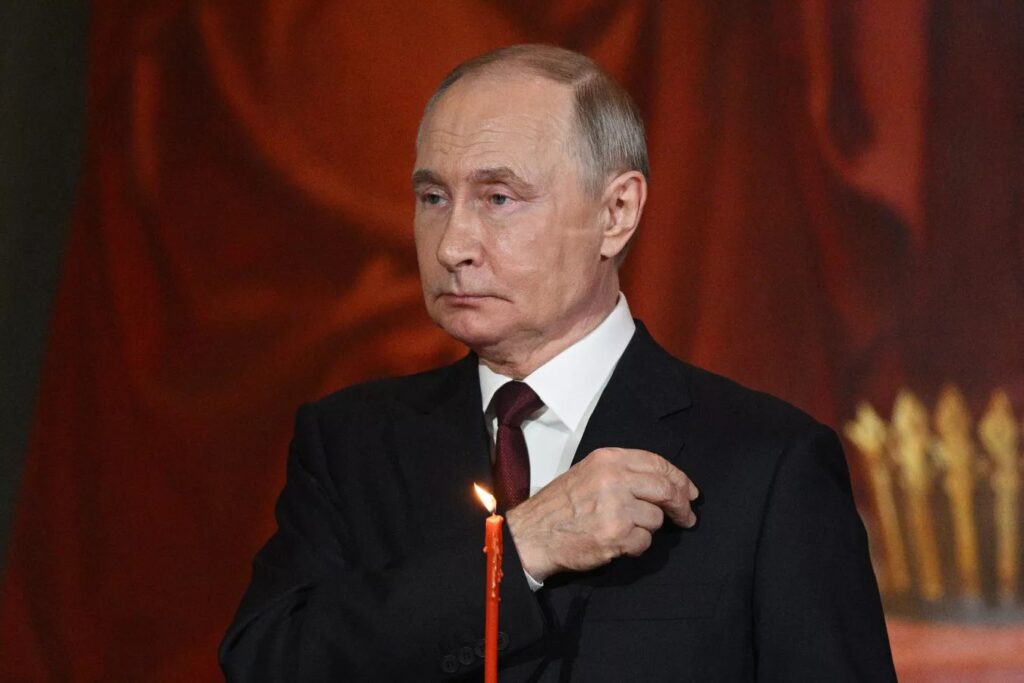ISW: Putin’s victory plan hinges on Western fatigue and Ukrainian collapse

Russian President Vladimir Putin continues to pursue a long-term strategy of grinding attritional warfare in Ukraine, according to a 19 June assessment by the Institute for the Study of War (ISW). Speaking at the St. Petersburg International Economic Forum (SPIEF), Putin reiterated claims of Russian advances along the entire frontline and warned of worsening terms if Ukraine rejects Russian “peace” proposals. “The West has failed to convince Russian President Vladimir Putin to reevaluate his theory of victory in Ukraine in the past year,” ISW says.
During a session with foreign journalists at SPIEF on 19 June, Putin stated that Russian troops have a “strategic advantage” and are “still advancing” daily, even if progress is slower on some days. He contrasted the current situation with the March 2022 Istanbul peace talks, arguing that Russia’s demands have since grown stronger. Putin warned that Ukraine’s refusal to negotiate on Russia’s terms could lead to more severe consequences.
ISW: Putin’s economic forum now a tool to spread wartime optimism
He claimed that Russia remains prepared to achieve its objectives through military force if diplomacy fails.
ISW highlights strategic assumptions and risks
ISW assessed that Putin’s strategy hinges on the belief that Ukrainian forces will fail to regain lost ground and that Russian manpower and materiel advantages will outlast Ukraine’s resources and Western support. However, ISW notes that Russia is incurring disproportionately high losses for marginal gains, calling such a strategy unsustainable in the medium to long term.
Economic challenges and defense industry limitations are likely to impede Moscow’s ability to continue the war indefinitely. While higher oil revenues from rising prices — partly due to Israeli strikes against Iran — may help fund the war, this benefit is conditional on global oil trends and potential sanctions.
Putin adapts reflexive control campaign
ISW observed that Putin used the SPIEF platform to escalate Russia’s reflexive control campaign aimed at deterring Western military aid and NATO rearmament. He argued that NATO poses no real threat to Russia and claimed that Russia is capable of managing all potential dangers. Nevertheless, he warned that Germany’s potential delivery of Taurus missiles to Ukraine would damage bilateral ties — a marked shift from earlier Kremlin assertions that Western weapons would have no battlefield impact.
Putin also claimed that the idea of Russia planning to attack NATO were “nonsense,” despite recent Russian threats targeting the Baltic States and Finland.
Threats to supply adversaries and shift narrative
At SPIEF, Putin warned that Russia might begin supplying long-range weapons to unspecified Western enemies if Ukraine uses Western-supplied arms to strike Russian territory — a direct threat not present in his latest 2025 comments but previously made in June 2024. ISW notes that this reflects the Kremlin’s evolving messaging, adapted for different audiences.
Putin again attacks Zelenskyy’s legitimacy
Putin declared on 19 June that he would not sign any peace agreement with Ukrainian President Volodymyr Zelenskyy, repeating the false claim that Zelenskyy’s term has expired without legal basis for extension. He stated that Russia will only sign agreements with “legitimate” authorities, and further alleged that if the president is illegitimate, then so is the entire Ukrainian government. These claims contradict Ukrainian law, which allows for martial law to delay elections while national security is threatened.
Kremlin doubles down on old narratives
According to ISW, Putin used his appearance with Western journalists to recycle standard Kremlin narratives — including blaming the West for starting the war and violating the Minsk agreements. Kremlin spokesman Peskov said on 18 June that Putin sought to “accurately” present Russia’s viewpoint to international audiences. ISW assessed that this outreach aims to influence ongoing Western debates on future military aid to Ukraine.
Read also
-
Trump delays backing new Russia sanctions over claimed US economic burden and peace deal hopes as Moscow continues to bomb Ukraine
-
Putin calls to congratulate Trump on his birthday — then launches hypersonic missiles on small Ukrainian city in one of largest attacks of war
-
ISW: Russia wants to modernize army for long war with Ukraine and possible NATO confrontation